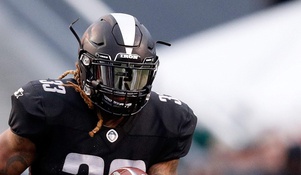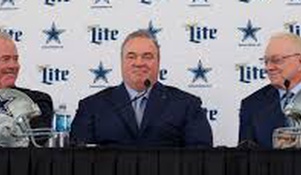May this be the last time we discuss Terrell Owens
The Pro Football Hall of Fame induction ceremony, held the first weekend in August, serves as an introduction to the upcoming NFL season, honoring the past while preparing to be in the thrall of the present day action. And Canton shall receive eight new inductees, each carving out their legacy during their careers. Bobby Beathard was the general manager who developed multiple Super Bowl champions. Jerry Kramer was the strength of those Green Bay Packer offensive lines during the Vince Lombardi era. Ray Lewis and Brian Urlacher were the two men at the turn of the millennium, through athleticism and drive, revitalized the middle linebacker position for the game's next generation of players. Brian Dawkins was a mainstay of the Philadelphia Eagles as they rose to become an NFC power. Robert Brazile was the anchor of a stout Houston Oilers defense that would be overshadowed by Pittsburgh's Steel Curtain in their own division. And Randy Moss, whose career spanned across a handful of teams, was a transcendent talent that will go down in history as one of the best receivers to ever take the field.
But the last member of this induction class should be remembered in that same vain, but due to his antics throughout the majority of his 15 year career, that is largely forgotten. And that man in question is none other than Terrell Owens. The reason why Owens was separated in the above highlights of his HoF class is, in actuality, a product of his decision to not attend the induction ceremony in Canton, opting for a separate gathering in Chattanooga, TN. The reason for this unprecedented snub? Because of his belief that he should have been inducted on the first ballot. For those who followed Owens for his career, this is nothing new.
First of which, allow your humble scribe to state unequivocally that Owens does belong in the Hall of Fame. Here's a summary of his bona-fides: 15,934 career receiving yards puts him second only to the incomparable Jerry Rice. 153 receiving touchdowns is third to Rice and Moss. He is 8th in career receptions (1078), a 5 time All-Pro, a 3 time season receiving touchdowns leader, had 9 1000 receiving yard seasons, and is a member of the NFL's 2000's All Decade Team. When it comes to cold, hard numbers, Owens sits in elite company.
But Owens' legacy as it will be remembered by those who witnessed his career will forever be colored by his words and actions once he was regarded as an elite player. When he was drafted by the San Francisco 49ers in 1996, he was originally cast as a complementary receiver opposite top draft pick J. J. Stokes. But Owens' play would make him into Rice's successor. Many fans' first memory of Owens was a playoff winning catch from fellow Hall of Famer Steve Young. Owens was emotional immediately after that happened, and fans reacted positively in Owens' show of raw emotion. But something happened to Owens over time. Once the 49ers made it clear they were going to restructure the roster with an eye toward salary cap discipline, the team would be radically different once the 2003 season concluded. And in that year, Owens would become the personality that we as fans would call TO, one who publicly voiced displeasure with his teammates and organization, often to the franchise's detriment. He would continue this pattern in Philadelphia, even after proving that his talent alone gave the Eagles capability to dominate the NFC if team chemistry would have been so inclined. It would continue in Dallas, even after receiving a 3 year, $25 million contract. But after that, he began to fade into obscurity, concluding his NFL career with one year stints in Buffalo and Cincinnati.
While his most ardent supporters point to his statistical body of work as proof of his greatness, the casual fan will not give Owens that due simply because of his disruptive nature once he joined a team. The largest block of football fans still view the game with the end result of the team, and a single player's greatness is measured by his contributions to the team's success.
And that, sadly, is what is completely lost on Owens. Had he not been such an extraordinary pain in the ass for his teammates and organizations to deal with, most assuredly he would have been a first ballot entrant into Canton's hallowed Hall. Terrell Owens never got the fact that football is a team game. No matter how great a singular player can be, no one person can win games alone. Owens made it a point to call out the football media for delaying his induction. But the one person he needed to hold accountable for that is the man he sees in the mirror.
Future generations may see Owens in a more positive light, placing his accomplishments in perspective in comparison to those who have followed him. But for those of us in the more recent past, let us close the book on Terrell Owens. His career has concluded, his legacy etched in time. And here is hoping that one more factor had also concluded; Owens' relevance in the pro football conscience.



